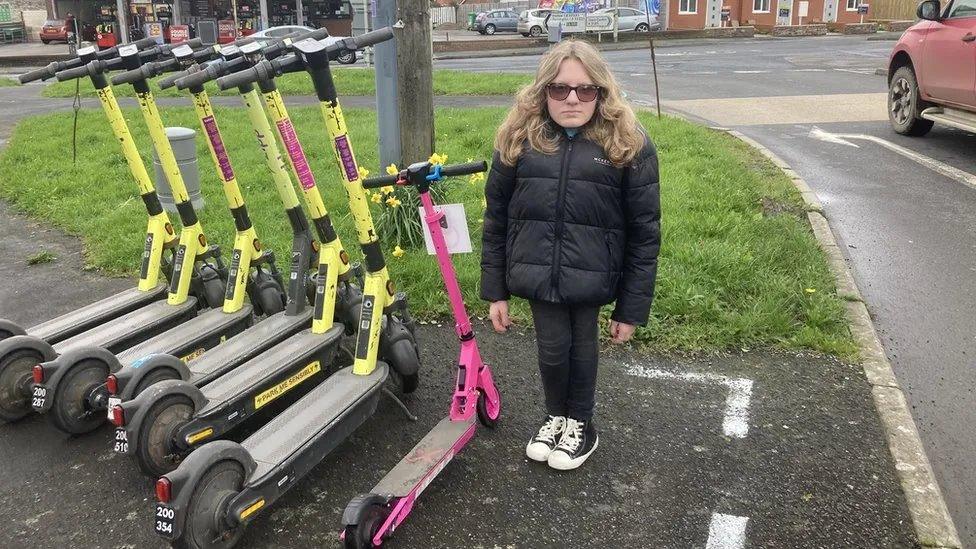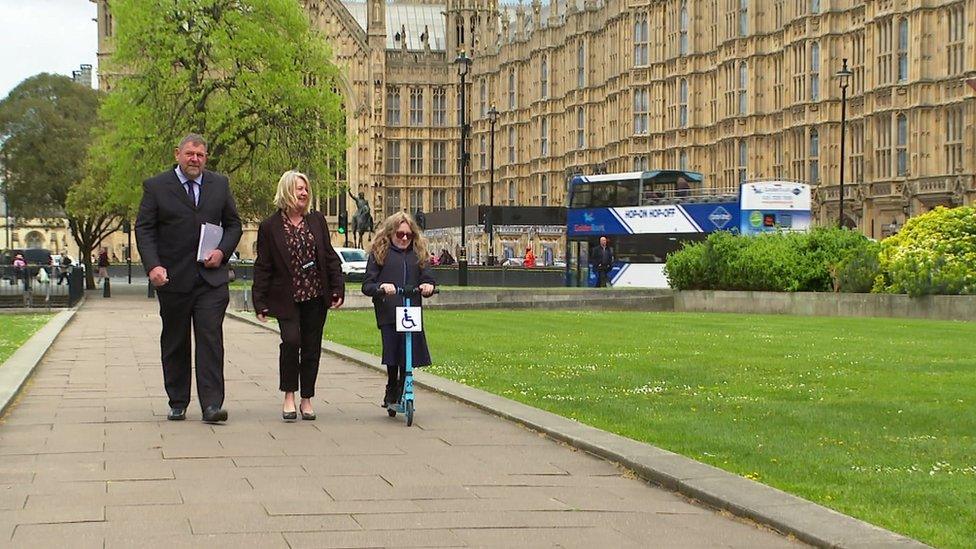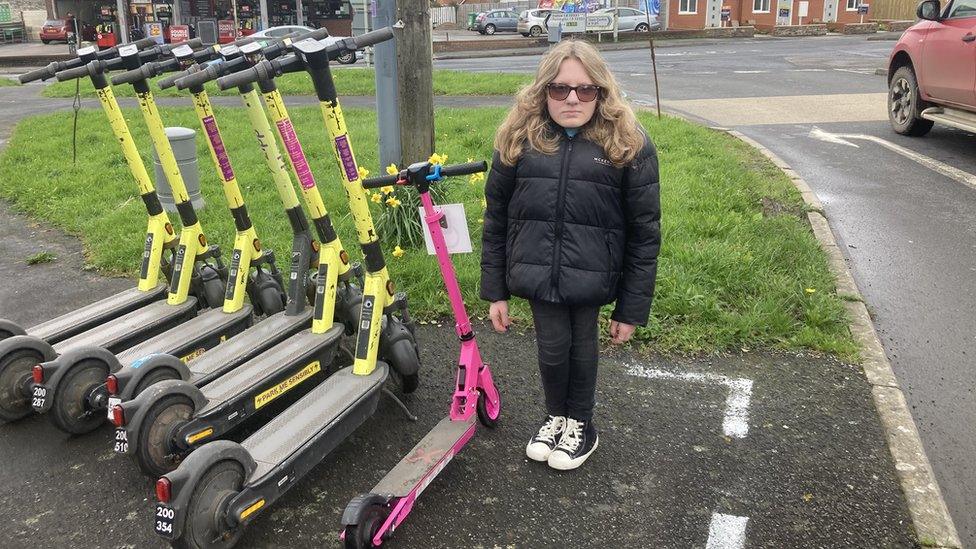Disability campaigner from Devon calls for e-scooter awareness
- Published

Ms Wakely has a rare form of dwarfism which affects her mobility
A disability campaigner has travelled to London to discuss being able to use her electric scooter as a mobility aid.
Ella Wakley, from Devon, has faced fines when using her scooter on public roads or public transport as current laws mean privately-owned e-scooters are illegal to ride on such routes.
Ms Wakely has a rare form of dwarfism which affects her mobility.
The Department for Transport said the government was "fully committed' to transport access for the disabled.
Previously, Ms Wakely launched a petition to the government to try and raise awareness of the issue, following meetings with her local MP, Conservative Selaine Saxby.
'Risk being fined'
After her London visit, she said: "They [government ministers] are hopeful that this can be changed so that it will allow e-scooters and Segways, and anything else like that, to be classed as an invalid carriage, so that disabled people can choose what mobility aid they use.
"I very happy about that as it was the outcome I was looking for, and I feel that disabled people should have the right to choose what mobility aid is right for them."
She added: "When I got the electric scooter, it was a life-changer. It's given me so much independence and helped me get to places that I couldn't get to walking.
"I have to use my scooter on the roads [but] I have to risk being fined and prosecuted, else I wouldn't be able to leave the house."

Ella's father and mother, Darren Wakely and Janette Wakely, travelled with her to London
Darren Wakely and Janette Wakely, Ella's parents, travelled with her to London.
Ms Wakely said: "The ministers are going to try and set up a taskforce to see what is available to do to make it legal for Ella to use an e-scooter, and everyone else that is disabled who needs to use one."
"Hopefully it will help Ella to get out and about, use public facilities and to not be so isolated."
The Department of Transport (DfT) says private e-scooters are treated like "any other motor vehicle" under the Road Traffic Act, requiring a driving licence, tax and insurance and cannot go on "public roads unless they meet all legal requirements of a motor vehicle, which most do not".
About Ms Wakely's London trip, the DfT said the government was "fully committed to ensuring disabled people can access the transport they need, and we are sympathetic towards the challenges Ella faces". It said: "That's why Transport Minister Anthony Browne has met with Ella to listen to her concerns and will consider whether any of these can be addressed, while we continue to gather further evidence to better inform regulations."

Follow BBC Devon on X (formerly Twitter), external, Facebook, external and Instagram, external. Send your story ideas to spotlight@bbc.co.uk, external.
Related topics
- Published15 March 2024
